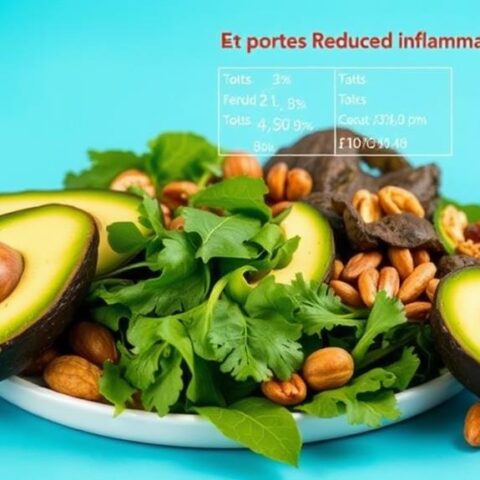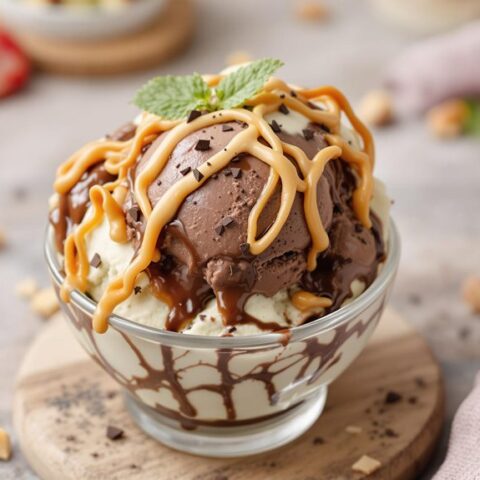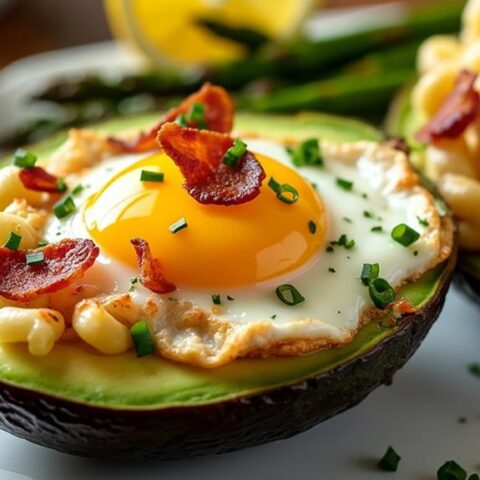
Calculating carbs in soju is straightforward, given its typically low carbohydrate content. Traditional soju, made from fermented starches like rice or sweet potatoes, undergoes a distillation process that yields 0 grams of carbs per standard 1.5 oz serving. This makes it compatible with ketogenic diets, where net carb intake is restricted to 20-30 grams daily. However, flavored varieties may contain added sugars, increasing carbohydrate content. Checking brand labels is advisable to verify carb levels align with dietary goals. While soju offers a lower-calorie choice compared to other spirits, understanding these nuances can guide healthier consumption.
Key Takeaways
- Standard 1.5 oz serving of soju contains approximately 0 grams of net carbs.
- Base ingredients like rice or barley can influence residual sugars and carb content.
- Flavored soju may have added sugars, increasing carbohydrate levels.
- Check brand labels for specific carb content due to variations in production methods.
- Soju's low carb content supports ketogenic diet adherence while managing blood glucose levels.
Understanding Soju Ingredients
Soju, a traditional Korean spirit, derives its unique profile from a select combination of ingredients, primarily fermented starches such as rice, barley, or sweet potatoes. These starches undergo fermentation and distillation, processes that are vital in transforming them into a refined alcoholic beverage.
The selection of base starches is instrumental in determining both the flavor and the calorie count of soju, as each ingredient contributes distinct characteristics to the final product. Typically, rice-based soju presents a more neutral flavor, while sweet potato variants offer a slightly sweet undertone.
Water is another critical ingredient, playing an important role in diluting the distilled liquor to achieve the desired alcohol concentration, usually around 20-24% by volume. This dilution not only affects the strength of the alcoholic beverage but also its calorie count, making it an important consideration for health-conscious consumers.
Additionally, the emergence of flavored soju—infused with fruits and other natural flavors—has expanded its appeal without greatly increasing the calorie count, due to the typically low-sugar nature of these additives.
Understanding these ingredients is essential for consumers mindful of both taste preferences and dietary considerations when selecting their preferred soju.
Carb Content in Soju
For those adhering to low-carb or ketogenic diets, maneuvering alcoholic beverage choices can be challenging, yet soju stands out as a particularly accommodating option. With a carb content of 0 grams per standard 1.5 fl oz serving, soju can be seamlessly included in a keto lifestyle without impacting daily net carb limits. The typical ketogenic diet restricts net carb intake to 20g-30g daily, ensuring that soju consumption does not compromise ketosis maintenance. This makes soju a versatile choice for those looking to enjoy an alcoholic beverage without derailing their dietary goals.
| Serving Size | Net Carbs | Keto-Friendly? |
|---|---|---|
| 1.5 fl oz | 0g | Yes |
| 3 fl oz | 0g | Yes |
| 6 fl oz | 0g | Yes |
| 9 fl oz | 0g | Yes |
Despite soju's zero carb content, it's important to evaluate the negative effects of excessive alcohol consumption. While soju does not contribute to carb intake, overconsumption may hinder weight management and metabolism—vital factors in a ketogenic diet. As a result, moderation remains essential to maintaining health and ensuring that soju complements rather than conflicts with dietary objectives.
Factors Affecting Carb Levels
Understanding the factors that affect carbohydrate levels in soju is key for those aiming to maintain a low-carb lifestyle. The carbohydrate content in soju is influenced by several variables, including the ingredients used and the production process.
Traditional soju, typically made from rice, barley, or sweet potatoes, undergoes a fermentation process that can impact carb levels. During fermentation, starches are converted into alcohol and residual sugars, which determine the final carbohydrate content. Rice and barley may result in varying residual sugars, affecting the carb count.
Flavored soju presents a different scenario. While classic soju is generally low in carbs, flavored soju often contains added sugars or sweeteners to enhance taste, resulting in higher carbohydrate content. This makes flavored soju less suitable for low-carb or ketogenic diets.
Consumers should be diligent in checking specific brand labels, as carbohydrate levels can vary considerably across different soju brands due to unique production methods and ingredient choices.
Calculating Soju Carbohydrates
When evaluating the carbohydrate content in soju, it is essential to contemplate the standard serving size and its implications for various dietary plans. Soju, a popular choice among alcoholic drinks, contains approximately 0 grams of net carbs per standard 1.5 oz serving. This makes it particularly appealing for those aiming to maintain a healthy diet, such as individuals adhering to low-carb regimens like the ketogenic diet.
The typical alcohol by volume (ABV) of soju ranges from 16% to 25%, which does not notably contribute to carbohydrate intake, offering a distinct advantage over other higher-carb alcoholic options. Remarkably, the ketogenic diet promotes fat as the primary energy source, and soju's low carb content aligns well with this dietary approach, supporting stable blood glucose levels.
With approximately 64 calories per serving, soju's minimal carbohydrate content plays a role in its lower calorie count compared to other spirits. Soju's negligible carb profile allows for flexibility in managing daily net carb intake, essential for maintaining ketosis.
Despite its low carb content, excessive alcohol consumption can still impede fat burning and weight management. Understanding these factors is fundamental for those looking to incorporate soju into their lifestyle while working to maintain a healthy balance between enjoyment and dietary goals.
Tips for Carb-Conscious Drinking
Incorporating soju into a low-carb diet, such as keto, requires more than just an understanding of its carbohydrate content. While soju contains 0 grams of net carbs per standard serving, maintaining ketosis necessitates careful consideration of alcoholic intake. The standard guideline for ketosis allows for a daily net carb limit of 20g to 30g, providing flexibility in meal planning. However, excessive consumption of alcoholic drinks per day can impede the metabolic benefits of a low-carb regimen by inhibiting fat burning.
To optimize your carb-conscious drinking strategy, pairing soju with low-carb foods is advisable, thereby mitigating potential negative effects. This mindful approach not only maintains ketosis but also promotes overall health. Additionally, monitoring personal tolerance and hydration levels is essential, as moderation remains vital for a balanced lifestyle.
Here is a table to guide carb-conscious drinking:
| Aspect | Recommendation | Health Benefit |
|---|---|---|
| Carbohydrate Content | 0g per 1.5 oz | Supports ketosis |
| Daily Intake Limit | Moderate drinks per day | Sustains metabolic state |
| Pairing with Foods | Low-carb options | Enhances nutrient intake |
| Hydration | Adequate water intake | Prevents dehydration |
| Personal Tolerance | Monitor individual limits | Avoids adverse effects |
Frequently Asked Questions
How Many Carbs in a Bottle of Soju?
Analyzing the nutritional information of soju reveals that a 750ml bottle, typically containing 16 servings, has approximately 28.8 grams of carbohydrates. This low-carb content makes soju a favorable option for individuals monitoring their carbohydrate intake.
How Many Carbs Are in Fresh Soju?
Fresh soju exhibits a carb content of approximately 0 grams per 1.5 oz serving, offering versatility for low-carb diets. Its diverse soju flavors allow for enjoyable consumption without compromising dietary goals, supporting balanced health management.
How Many Carbs Are in Good Day Soju?
Good Day Soju contains 0 grams of net carbohydrates per 1.5-ounce serving, as per soju nutrition data. This makes it a keto-friendly choice. The ingredients in Good Day support its low-carb profile, aligning with ketogenic dietary guidelines.
Why Is Soju so High in Calories?
Soju's high caloric content primarily arises from its alcohol, which is a dense energy source. While sugar sources in its production are minimal, the fermentation and distillation processes convert starches to alcohol, greatly contributing to calorie levels.
Conclusion
To summarize, understanding the carbohydrate content in soju necessitates a detailed examination of its ingredients and production processes. Variations in carbohydrate levels can arise from different fermentation methods and added flavorings. Accurate calculation of carbohydrates in soju empowers consumers to make informed decisions, aligning with dietary goals. Employing strategies for carb-conscious drinking can help mitigate potential health impacts, emphasizing the importance of informed consumption in maintaining a balanced lifestyle while enjoying this popular beverage.










No Comments